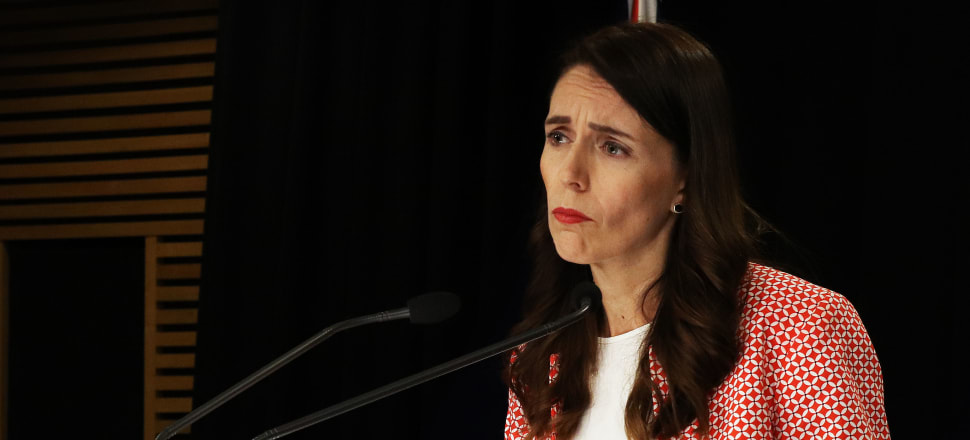
The Government continues to make progress on the recommendations of the Royal Commission into the Christchurch terror attack but the thorniest issues still remain
Analysis: The past week has seen a flurry of activity in counterterrorism and preventing extremism policy as the Government ticks off yet more boxes from the Royal Commission report into the March 15 terror attack.
Last Thursday, the Security Intelligence Service released a set of guidelines on how to spot concerning behaviour that someone could be mobilising to violence.
Ethnic Communities Minister Priyanca Radhakrishnan announced a new strategic framework to benchmark and track social cohesion and to fund community initiatives.
Then on Monday and Tuesday, the Government's second annual counterterrorism hui ran without the controversy that marred the first. As part of that, the Prime Minister revealed a draft long-term insights briefing on national security which will now go out for public consultation.
These all fulfil the recommendations of the Royal Commission report. The Government accepted in principle all 44 recommendations of the commission in 2020 and has worked to implement them ever since.
It's particularly important work in light of the ongoing threat from extremists. Online, the sale of Twitter to a mercurial billionaire has seen a surge in threats, racism and harassment on the major platform. Offline, a violent extremist stormed the house of the Speaker of the US House of Representatives Nancy Pelosi and assaulted her husband. The Prime Minister's own electorate office was attacked last week too.
This marked progress and the hui itself were both largely overshadowed by some of the most important and most controversial recommendations from the Royal Commission that have yet to be completed: Hate speech (and its little sibling hate crime) reform.
New Zealand has laws against hate speech but they only apply to discrimination on the basis of race, ethnicity or national origin. The letter of the law is so broad that courts have adopted a much narrower interpretation since it was passed in 1993, meaning only a single successful prosecution for hate speech has occurred in the past 29 years. That case was last year, when Tauranga man Richard Jacobs posted a YouTube video calling for genocide and a race war against Māori.
There is no law to allow people to be charged with hate crimes, but a hateful motivation can be taken into account during sentencing. The Government hasn't consulted on any hate crime proposals and the fate of this recommendation remains unclear.
Hate speech, on the other hand, was the subject of a boisterous debate and consultation period last year. The then-Justice Minister Kris Faafoi was unable to answer basic questions about the intent and impact of the reforms. Would it be illegal to call someone a boomer or a Karen? Obviously not, but Faafoi demurred, spurring criticism from the Opposition and the public.
After the backlash, he effectively shelved the reforms but the new minister in charge, Kiri Allan, said shortly after she came into the role that she would have announcements to make soon.
Over the weekend, Allan confirmed that hate speech laws would be passed through Parliament before the election, reigniting last year's political firestorm and completely overshadowing the counterterror hui.
"It’s time for the Government to back away from this law which will only serve to divide New Zealanders against each other," ACT Party leader David Seymour said in a statement just an hour after Allan made the comments. The Free Speech Union also put out a press release saying it was "ready for round two".
Jacinda Ardern shed a bit more light on the possible way forward in comments on Monday, indicating the Government would seek National's backing for a slimmed down reform package.
The Government's original proposal had three main elements: Expanding the scope of the law to protect people from hate speech on religious, gender and other grounds; amending the definition of hate speech to have a higher threshold than the broad current one; and clarifying that both the hate speech provisions and all other protections in the Human Rights Act also apply to gender diverse people.
Ardern said she hoped to have support from across the aisle. "We may not have everyone, but I would like to see general support for the changes proposed," she said, implying that National might back the reforms but ACT probably wouldn't.
To get National's support, the reforms would have to be dramatically different from what was proposed last year.
"I would have thought that amongst politicians there should be good support for saying, actually, you should not experience hate speech and incitement based on your religion. It’s a fairly simple concept," Ardern added, when Newsroom asked whether she could get National's backing.
"Where there were issues last time was because there were other amendments around some of the thresholds in language that caused some concern, but let’s get back to our first principles on this one."
This suggests the forthcoming hate speech reforms may expand the list of protected groups but not tweak the definition of hate speech. The status of gender diverse people was left unclear by the Prime Minister's comments.
Such a move is likely to be endorsed as a good first step by affected groups, but not the end of the road. Lending religious minorities protection from a law that has only seen a single successful prosecution in 29 years probably doesn't lend them very much protection at all.
If the definition really is left alone, Allan will have the difficult task of explaining how it is still fit for purpose when it has been so very toothless for three decades.
And if the Government does decide to make changes to thresholds, she’ll have to do a much better job of explaining the reasons than Faafoi did last year. It was his botched announcement that allowed deliberate and genuine misinterpretations of the proposal to dominate the narrative.
The last thing communities under siege from hate speech want is a repeat of last year.







